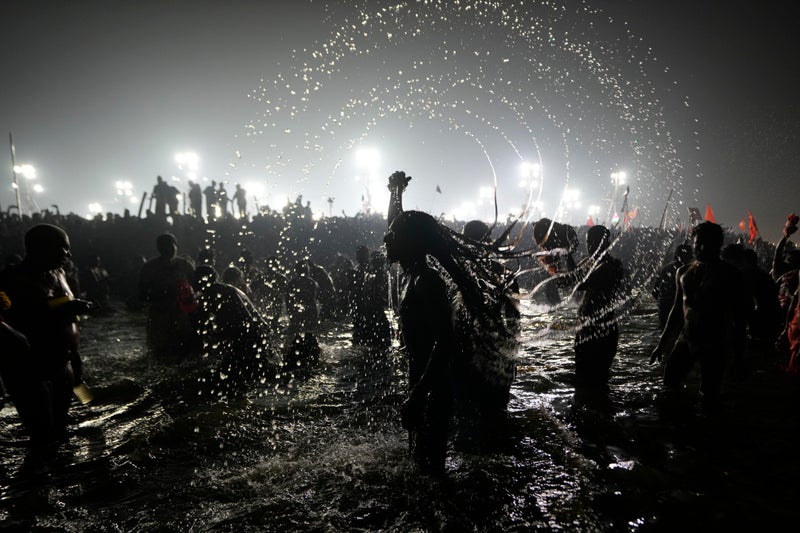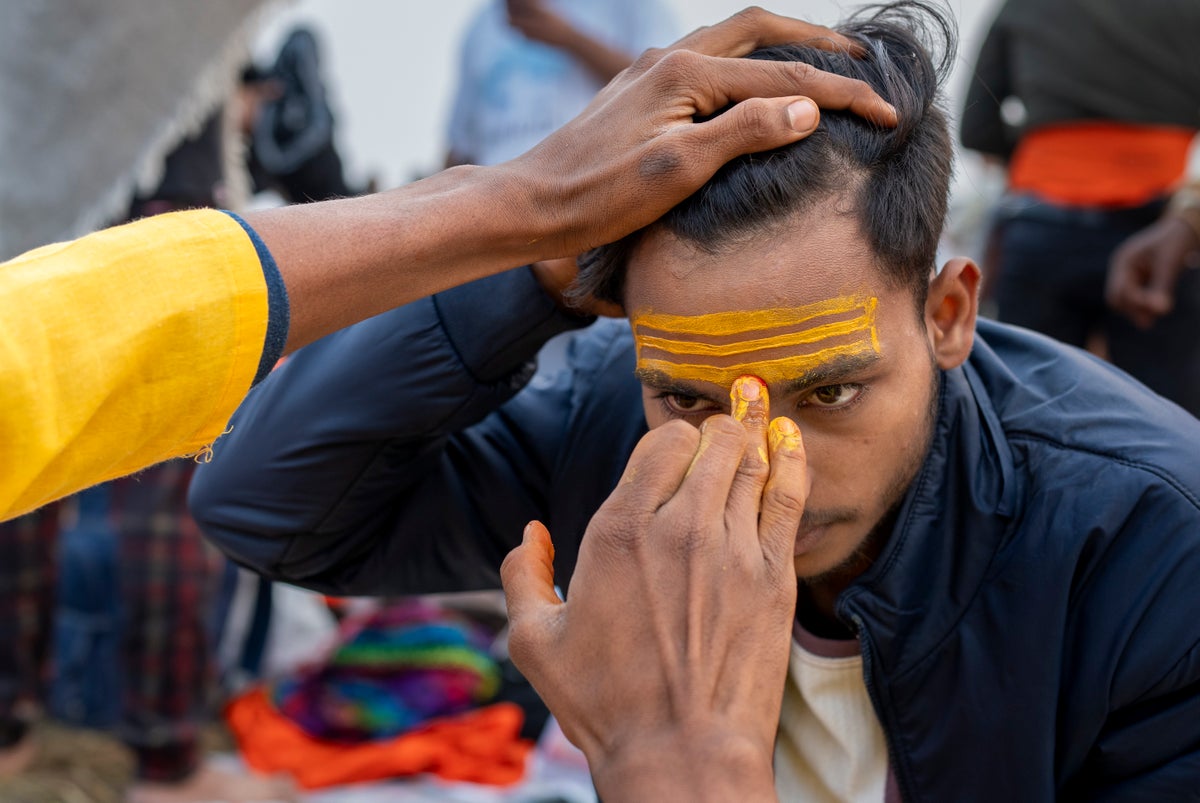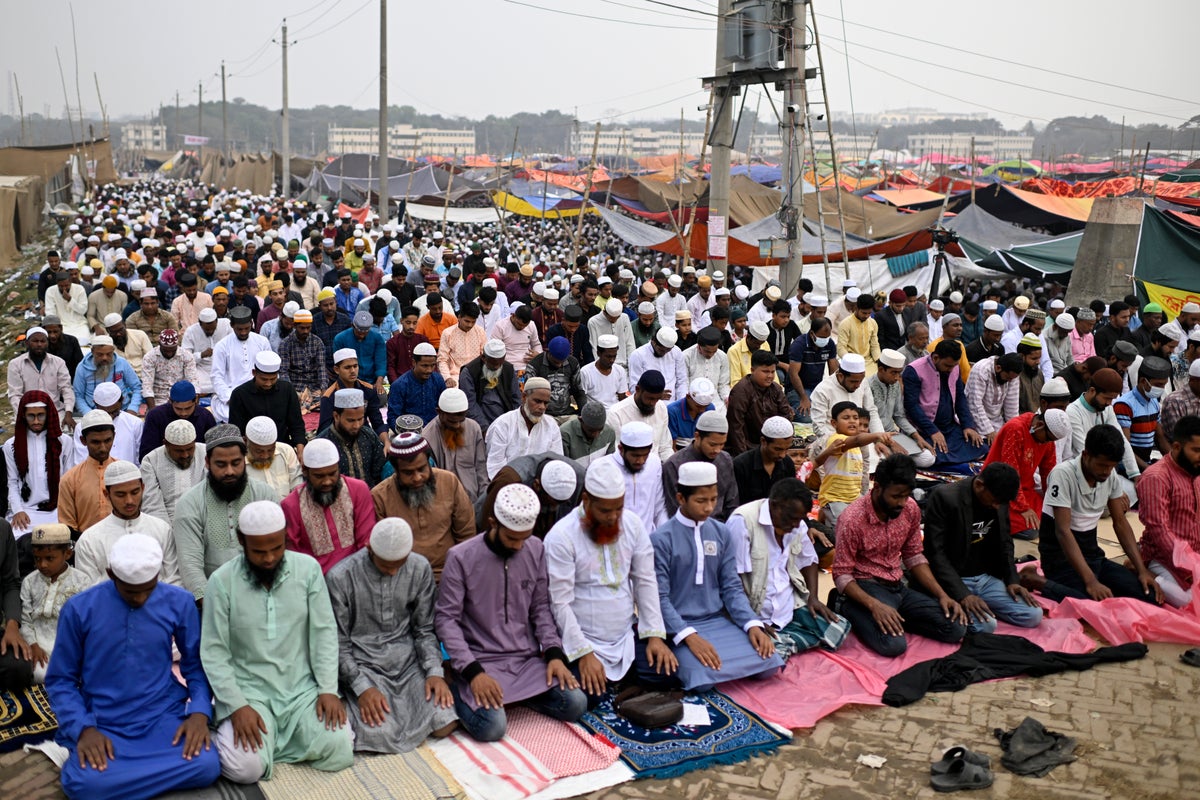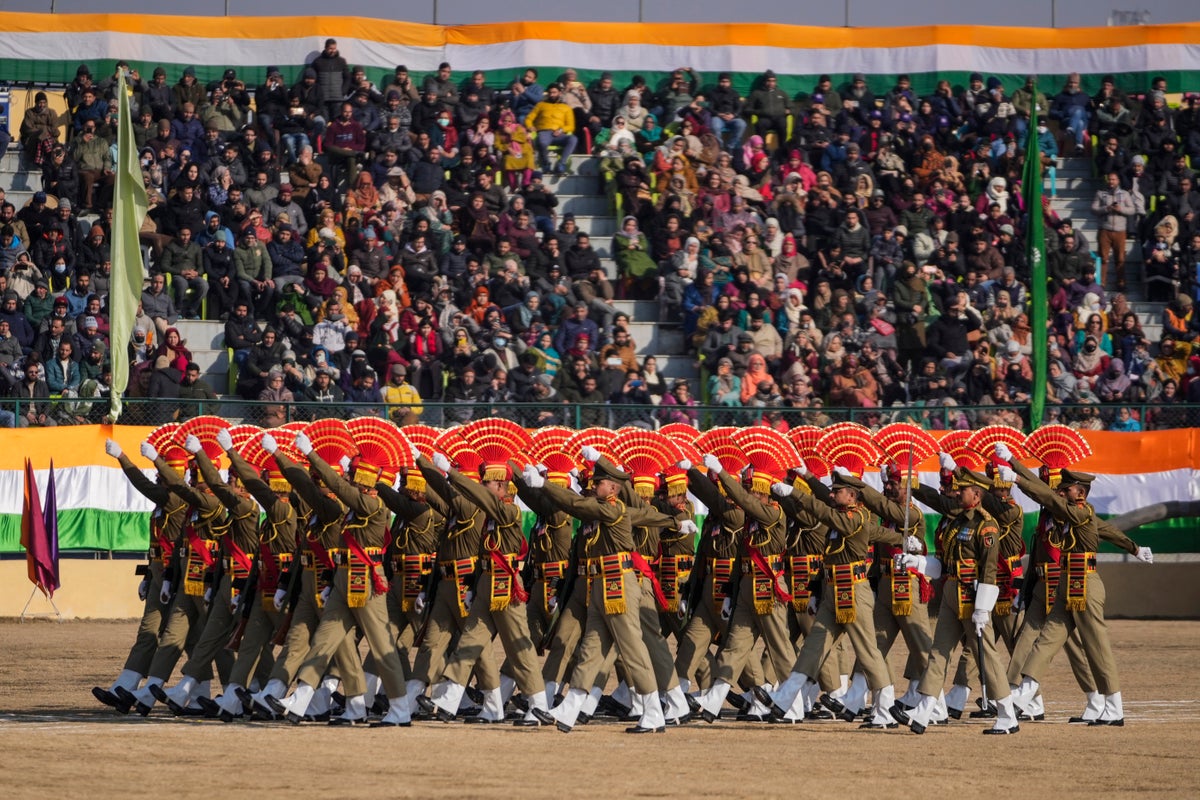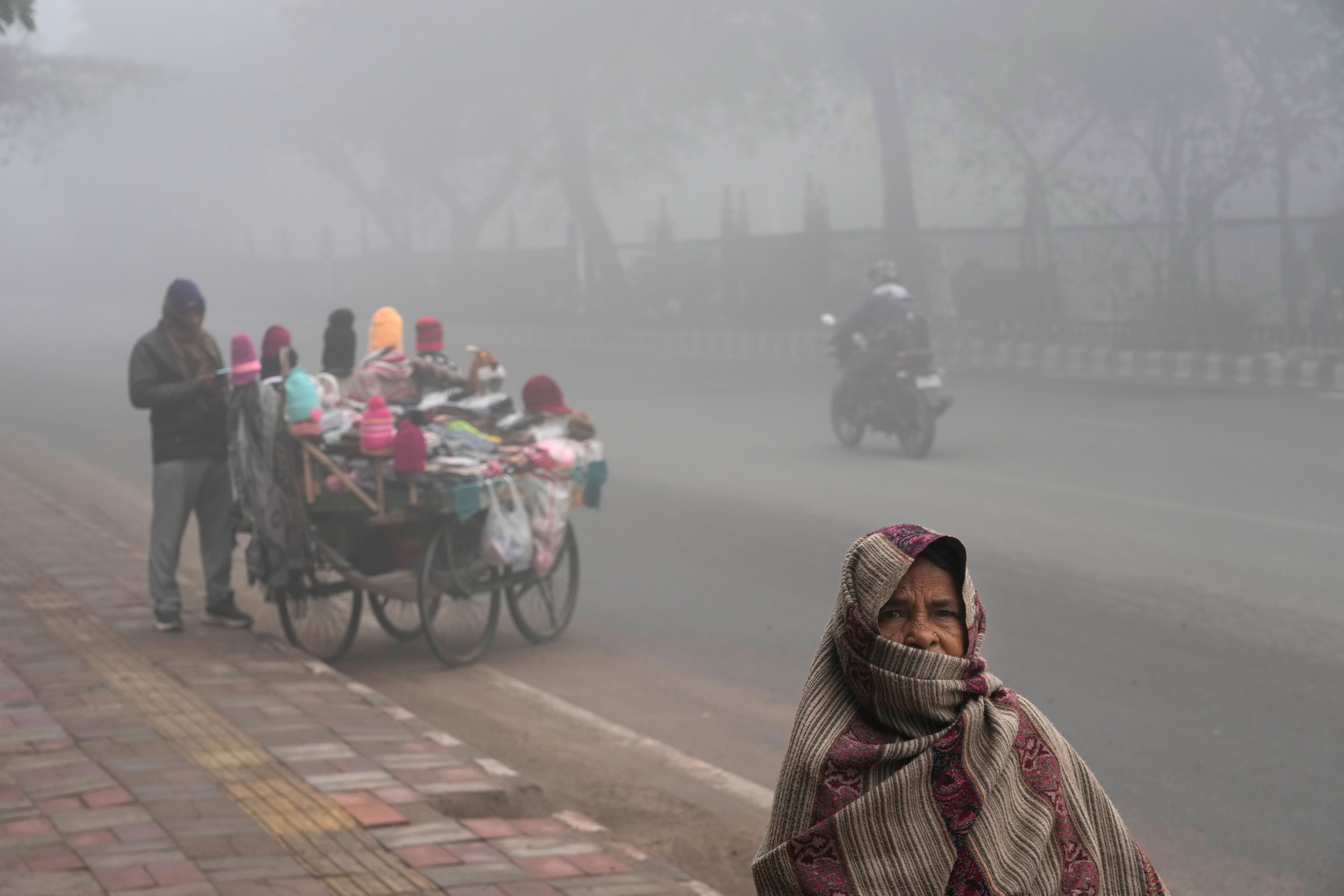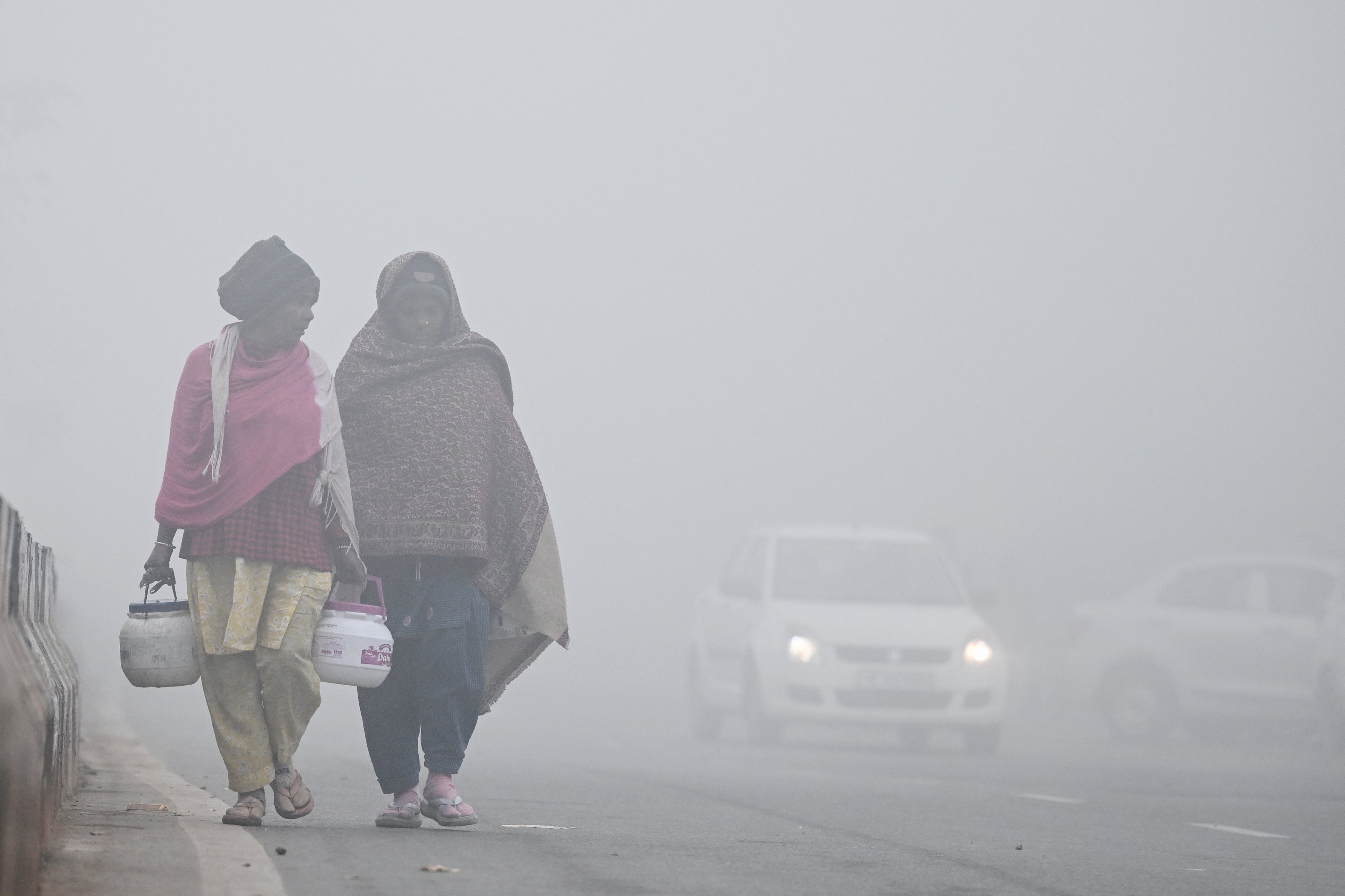‘Inevitable’: how joy turned to horror as Kumbh Mela festival crowd crush unfolded
‘Inevitable’: how joy turned to horror as Kumbh Mela festival crowd crush unfolded
Share:
This year’s event, heavily promoted by India’s ruling party, continues despite deaths of at least 30 people. As the sun set on the sangam, the sacred meeting point of the Ganges and Yamuna rivers on Tuesday, there was a mood of jubilation on the banks. This was the eve of one of the holiest days of the Kumbh Mela festival – the largest religious gathering not only in India but the world – and millions upon millions had made long, often arduous journeys to immerse themselves in the water.
![[Pilgrims bathe at the banks of the confluence of the Ganges and Yamuna rivers on Monday]](https://i.guim.co.uk/img/media/62783f6ac67ba1c25eba9bf3df92d3c36eb3e827/0_0_7373_4918/master/7373.jpg?width=445&dpr=1&s=none&crop=none)
“It seems like the entire country has come to the sangam to bathe,” exclaimed Rubi Kumar, 43, sandwiched tightly with fellow devotees on the riverbank. She had taken a 36-hour train from her home state of Bihar, and then walked 25 miles to reach this spot. Still dripping wet from her first holy dip, she beamed widely as she tied up her soft pink sari.
![[People sleep on plastic sheeting and under blankets out in the open.]](https://i.guim.co.uk/img/media/929b7b0ddb3da6314a814f79c64d4dca9bf29d4e/0_0_6195_3980/master/6195.jpg?width=445&dpr=1&s=none&crop=none)
“It was such a struggle to get here but now it feels like all the pain and agony has gone,” said Kumar. “It’s one of the most beautiful days of my life.” She planned to take one more dip at about 3am the next morning – the most auspicious time, on Wednesday – and then head hundreds of miles back home.
![[A dense crowd of people crossing a pontoon bridge]](https://i.guim.co.uk/img/media/f5eea792273f4247569a157dcb3f176a3239c5fd/0_0_6033_4024/master/6033.jpg?width=465&dpr=1&s=none&crop=none)
The potent belief among the Hindu devotees gathering that evening was that to be cleansed in the sangam waters over the next few hours – a period known as Mauni Amavasya, marking a new moon – was to free their body of past sins and relinquish the endless cycle of birth and death. Some wept as they entered the freezing river, while others shouted out in euphoria or whispered prayers as they scattered flowers and poured cups of milk into the holy waters.
![[A crowd of people seen from below, one woman is trickling water from her cupped hands]](https://i.guim.co.uk/img/media/0ef9e171bbcf3b82db3aeb9249fa1042895f4668/0_0_8243_5127/master/8243.jpg?width=445&dpr=1&s=none&crop=none)


